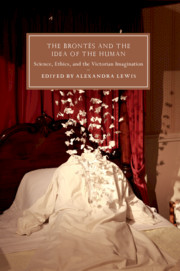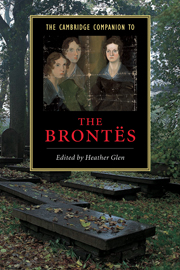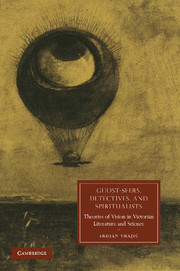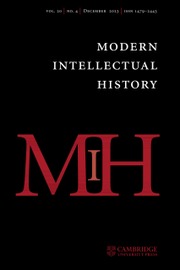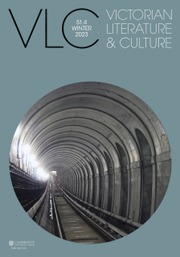The Brontës and the Idea of the Human
Science, Ethics, and the Victorian Imagination
£30.99
Part of Cambridge Studies in Nineteenth-Century Literature and Culture
- Editor: Alexandra Lewis, University of Aberdeen
- Date Published: March 2021
- availability: Available
- format: Paperback
- isbn: 9781316608371
£
30.99
Paperback
Other available formats:
Hardback, eBook
Looking for an inspection copy?
This title is not currently available on inspection
-
What does it mean to be human? The Brontë novels and poetry are fascinated by what lies at the core - and limits - of the human. The Brontës and the Idea of the Human presents a significant re-evaluation of how Charlotte, Emily, and Anne Brontë each responded to scientific, legal, political, theological, literary, and cultural concerns in ways that redraw the boundaries of the human for the nineteenth century. Proposing innovative modes of approach for the twenty-first century, leading scholars shed light on the relationship between the role of the imagination and new definitions of the human subject. This important interdisciplinary study scrutinises the notion of the embodied human and moves beyond it to explore the force and potential of the mental and imaginative powers for constructions of selfhood, community, spirituality, degradation, cruelty, and ethical behaviour in the nineteenth century and its fictional worlds.
Read more- Eminent scholars provide new insights into the writing of the Brontë sisters and their cultural contexts
- Investigates the relationships between between literature, science, psychology, religion, law, and ethics to re-evaluate nineteenth-century understandings of what it means to be human
- Delivers an interdisciplinary study of the relationship between the role of the imagination and new definitions of the human subject
Reviews & endorsements
'This collection of 13 essays offers interdisciplinary perspectives on the Brontës, especially Charlotte … The present volume's close readings of the Brontës' novels lead to fresh insights … Recommended.' S. A. Parker, Choice
See more reviews'Alexandra Lewis's edited collection, The Brontës and the Idea of the Human: Science, Ethics, and the Victorian Imagination, expands this focus from the cultural to the universal.' Lydia Craig, British Association for Victorian Studies Newsletter
Customer reviews
Not yet reviewed
Be the first to review
Review was not posted due to profanity
×Product details
- Date Published: March 2021
- format: Paperback
- isbn: 9781316608371
- length: 312 pages
- dimensions: 229 x 152 x 17 mm
- weight: 0.423kg
- availability: Available
Table of Contents
Introduction: human subjects: reimagining the Brontës for twenty-first-century scholarship Alexandra Lewis
1. Hanging, crushing, and shooting: animals, violence and child-rearing in Brontë fiction Sally Shuttleworth
2. Learning to imagine Dinah Birch
3. Charlotte Brontë and the science of the imagination Janis McLarren Caldwell
4. Being human: de-gendering mental anxiety
or hysteria, hypochondriasis, and traumatic memory in Charlotte Brontë's Villette Alexandra Lewis
5. Charlotte Brontë and the listening reader Helen Groth
6. Burning art and political resistance: Anne Brontë's radical imaginary of wives, slaves, and animals in The Tenant of Wildfell Hall Deborah Denenholz Morse
7. Degraded nature: Wuthering Heights and the last poems of Emily Brontë Helen Small
8. 'Angels … recognize our innocence': on theology and 'human rights' in the fiction of the Brontës Jan-Melissa Schramm
9. 'A strange change approaching': ontology, reconciliation, and eschatology in Wuthering Heights Simon Marsden
10. 'Surely some oracle has been with me': women's prophecy and ethical rebuke in poems by Charlotte, Emily and Anne Brontë Rebecca Styler
11. Jane Eyre, a teaching experiment Isobel Armstrong
12. Fiction as critique: postcripts to Jane Eyre and Villette Barbara Hardy
13. We are three sisters: the lives of the Brontës as a Chekhovian play Blake Morrison.
Sorry, this resource is locked
Please register or sign in to request access. If you are having problems accessing these resources please email [email protected]
Register Sign in» Proceed
You are now leaving the Cambridge University Press website. Your eBook purchase and download will be completed by our partner www.ebooks.com. Please see the permission section of the www.ebooks.com catalogue page for details of the print & copy limits on our eBooks.
Continue ×Are you sure you want to delete your account?
This cannot be undone.
Thank you for your feedback which will help us improve our service.
If you requested a response, we will make sure to get back to you shortly.
×
